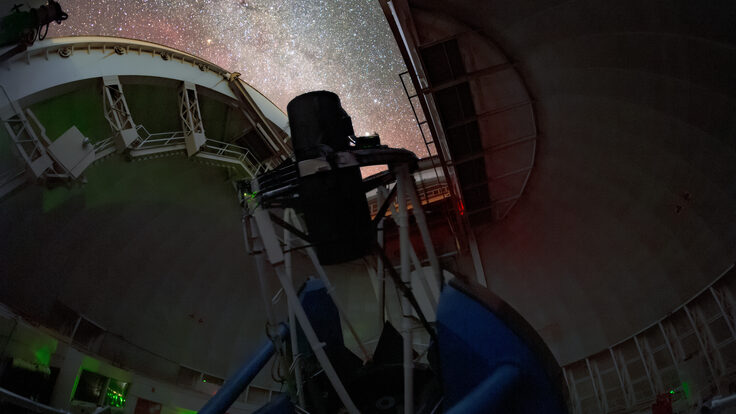e-Lab outreach in Bangalore
 |
|
Photo: Fermilab Education Office |
Armed with tin foil, GPS units, and sheets of black paper, two Fermilab educators headed to Bangalore to help high-school and college teachers set up a detector at a local planetarium. Indian students will join a study of cosmic rays. "The goal is to set up a research community that involves teachers and students," says Marge Bardeen (photo below, back row, left), director of Fermilab's Education Office, and co-facilitator of the two-day Bangalore workshop. "We set up the detector, and taught teachers how their students can conduct investigations online."
Using a website called an e-Lab, students can upload and analyze cosmic-ray data, showcase their research, and communicate with US students doing similar studies. In the e-Lab, students ask questions about cosmic rays and use the shared, online data to answer their questions. Co-facilitator Bob Peterson, also of Fermilab's Education Office, says part of the excitement is in figuring out what to ask. "There isn't one big cosmic-ray question that the students are trying to answer," he says. "One student asked me how snow affects cosmic rays, for example, and wound up creating a research project to find out."
Though cosmic ray detectors are scattered throughout US high schools, and about 170 are hooked up to the e-Lab now, the Bangalore visit made the collaboration international. "Our goal for this trip was to enable students in India to join the collaboration with the American students who are already logged in," says Peterson, adding that the Bangalore workshop participants were excited about bringing their classrooms online. "They were so smart and knowledgeable in high-energy physics, but also so open to new ideas," he says. "They said ‘this changes the way we teach,' but they were excited to try it."
Siri Steiner
Click here to download the pdf version of this article.






